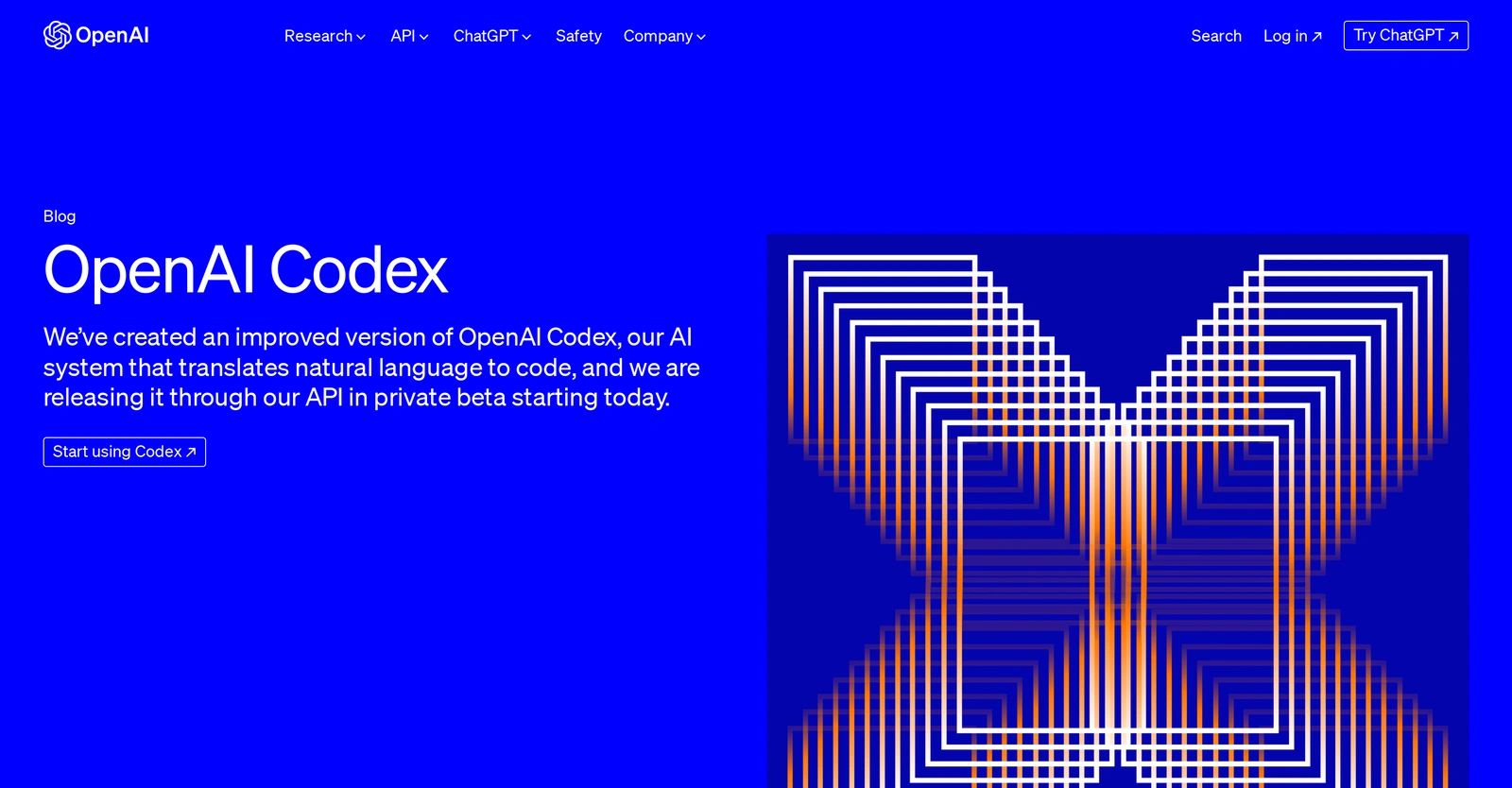OpenAI Codex is a highly advanced artificial intelligence system developed by OpenAI, specifically designed to transform natural language into executable code. Building upon the foundational architecture of its predecessor, GPT-3, Codex has been trained on an extensive dataset that not only includes a vast array of natural language but also encompasses billions of lines of publicly available source code. This rich training corpus features numerous programming languages, with Python being the most prominent, alongside over a dozen other languages such as JavaScript, Java, C++, Ruby, and more, which allows Codex to operate effectively in a wide variety of programming contexts. In contrast to GPT-3, which primarily focuses on generating coherent and contextually relevant natural language responses based on user prompts, Codex takes a significant step further. It is capable of generating functional code snippets and interpreting simple natural language commands to execute specific programming tasks. This unique ability enables it to bridge the gap between human linguistic expression and the precise syntax required by programming languages, thus making it a powerful tool for both novice and experienced developers alike. The applications of Codex are vast and varied, significantly expanding its usefulness across numerous programming-related tasks. For instance, it can assist in refactoring existing code to improve its efficiency or readability, provide detailed explanations of complex code segments to enhance understanding, and even write entirely new code based on straightforward natural language instructions provided by the user. This versatility is particularly beneficial in collaborative environments where clear communication is essential, as Codex can help articulate technical concepts in a more accessible manner. Moreover, Codex has demonstrated remarkable effectiveness in assisting developers with problem-solving. It can help break down intricate programming challenges into more manageable components, allowing programmers to align these simplified tasks with existing code solutions or features. This capability not only streamlines the development process but also encourages a more systematic approach to tackling programming obstacles, ultimately leading to more efficient and effective software development. Essentially, OpenAI Codex serves as an intuitive intermediary that connects human language with the structured language of code. By facilitating improved communication between developers and software systems, Codex enhances productivity and creativity in programming endeavors. Its ability to understand and generate code from natural language instructions represents a significant advancement in the field of artificial intelligence, paving the way for more user-friendly programming tools and fostering a deeper integration of AI into everyday coding practices.

Description
Get to know the latest in AI
Join 2300+ other AI enthusiasts, developers and founders.
Thank you!
You have successfully joined our subscriber list.
Add Review
Pros
Aids in simplifying complex problems
Augments human-to-software communication
Can be applied to many programming tasks
Can refactor code
Familiar with 12+ programming languages
Generates working code
Greater memory than GPT-3
Helps explain existing code
Improves code interpretation
Interprets commands in natural language
Maps simple problems to existing code
Most proficient in Python
Private beta via API
Produces executable software commands
Successful in code transpilation
Trained with public source code
Translates natural language to code
Utility for refactoring code
Augments human-to-software communication
Can be applied to many programming tasks
Can refactor code
Familiar with 12+ programming languages
Generates working code
Greater memory than GPT-3
Helps explain existing code
Improves code interpretation
Interprets commands in natural language
Maps simple problems to existing code
Most proficient in Python
Private beta via API
Produces executable software commands
Successful in code transpilation
Trained with public source code
Translates natural language to code
Utility for refactoring code
Cons
Closed system
Driven by known libraries
Free only initially
Interpreting commands may vary
less flexibility
limited access
Limited to known languages
May miss nuanced intent
Private beta
Python code memory limited
Requires command in English
Variable performance across tasks
Driven by known libraries
Free only initially
Interpreting commands may vary
less flexibility
limited access
Limited to known languages
May miss nuanced intent
Private beta
Python code memory limited
Requires command in English
Variable performance across tasks
Promote Your AI Tool
Get seen by thousands of AI enthusiasts, founders & developers.
- Homepage, Search and Sidebar Ads
- Featured Placements
- Click Stats & more
AI News











Leave a Reply